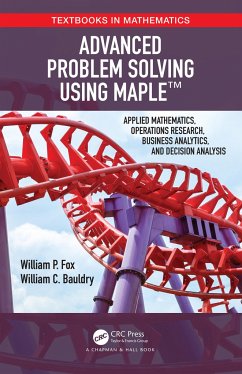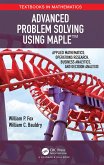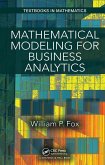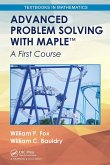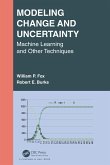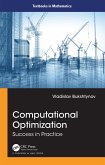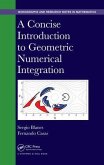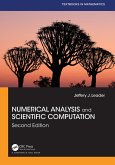Advanced Problem Solving Using Maple(TM): Applied Mathematics, Operations Research, Business Analytics, and Decision Analysis applies the mathematical modeling process by formulating, building, solving, analyzing, and criticizing mathematical models. Scenarios are developed within the scope of the problem-solving process.
The text focuses on discrete dynamical systems, optimization techniques, single-variable unconstrained optimization and applied problems, and numerical search methods. Additional coverage includes multivariable unconstrained and constrained techniques. Linear algebra techniques to model and solve problems such as the Leontief model, and advanced regression techniques including nonlinear, logistics, and Poisson are covered. Game theory, the Nash equilibrium, and Nash arbitration are also included.
Features:
The text's case studies and student projects involve students with real-world problem solving
Focuses on numerical solution techniques in dynamical systems, optimization, and numerical analysis
The numerical procedures discussed in the text are algorithmic and iterative
Maple is utilized throughout the text as a tool for computation and analysis
All algorithms are provided with step-by-step formats
About the Authors:
William P. Fox is an emeritus professor in the Department of Defense Analysis at the Naval Postgraduate School. Currently, he is an adjunct professor, Department of Mathematics, the College of William and Mary. He received his PhD at Clemson University and has many publications and scholarly activities including twenty books and over one hundred and fifty journal articles.
William C. Bauldry, Prof. Emeritus and Adjunct Research Prof. of Mathematics at Appalachian State University, received his PhD in Approximation Theory from Ohio State. He has published many papers on pedagogy and technology, often using Maple, and has been the PI of several NSF-funded projects incorporating technology and modeling into math courses. He currently serves as Associate Director of COMAP's Math Contest in Modeling (MCM).
The text focuses on discrete dynamical systems, optimization techniques, single-variable unconstrained optimization and applied problems, and numerical search methods. Additional coverage includes multivariable unconstrained and constrained techniques. Linear algebra techniques to model and solve problems such as the Leontief model, and advanced regression techniques including nonlinear, logistics, and Poisson are covered. Game theory, the Nash equilibrium, and Nash arbitration are also included.
Features:
The text's case studies and student projects involve students with real-world problem solving
Focuses on numerical solution techniques in dynamical systems, optimization, and numerical analysis
The numerical procedures discussed in the text are algorithmic and iterative
Maple is utilized throughout the text as a tool for computation and analysis
All algorithms are provided with step-by-step formats
About the Authors:
William P. Fox is an emeritus professor in the Department of Defense Analysis at the Naval Postgraduate School. Currently, he is an adjunct professor, Department of Mathematics, the College of William and Mary. He received his PhD at Clemson University and has many publications and scholarly activities including twenty books and over one hundred and fifty journal articles.
William C. Bauldry, Prof. Emeritus and Adjunct Research Prof. of Mathematics at Appalachian State University, received his PhD in Approximation Theory from Ohio State. He has published many papers on pedagogy and technology, often using Maple, and has been the PI of several NSF-funded projects incorporating technology and modeling into math courses. He currently serves as Associate Director of COMAP's Math Contest in Modeling (MCM).

